Judi Lynn
Judi Lynn's JournalUS city of Seattle demands end of the Blockade on Cuba (+Photos)

Washington, (Prensa Latina) The US city of Seattle today passed a resolution demanding the immediate end of the economic, commercial and financial blockade imposed by the US government against Cuba almost 60 years ago.
The document, endorsed by the City Council, also calls for eliminating travel restrictions that prevent US citizens from freely visiting the largest of the Antilles. Likewise, the main city of the northwestern state of Washington urges President Donald Trump to renew negotiations with the Government of the island as initiated in the previous administration of former President Barack Obama (2009-2017), 'to build a new relationship of cooperation between the United States and Cuba '.
In the same way, he asks to restore completely the personnel of the American embassy in Havana and that of the diplomatic legation of the Caribbean nation in Washington DC.
The resolution was introduced this Monday by Councilwoman Teresa Mosqueda, chairwoman of the Committee on Housing, Health, Energy and Workers' Rights of the said city body, and activist Cindy Domingo, who is the organizer of the U.S. association. Women and Cuba Collaboration.
More:
https://www.plenglish.com/index.php?o=rn&id=45528&SEO=us-city-of-seattle-demands-end-of-the-blockade-on-cuba-photos
The witnesses who will begin testifying in Uribe trial on September 3
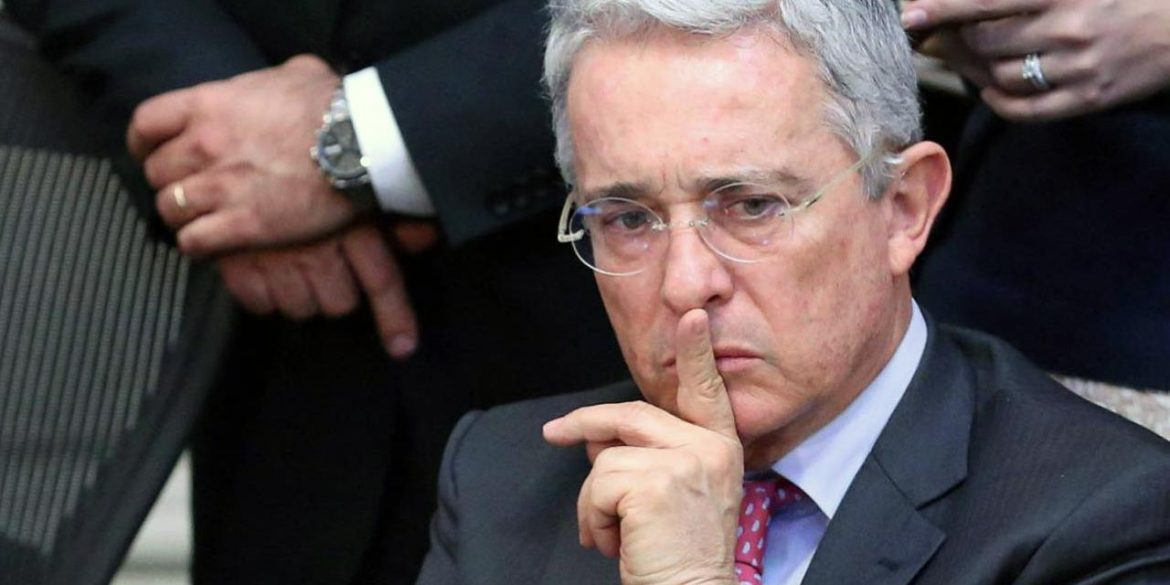
Analysis
by Adriaan Alsema August 19, 2019
Colombia’s Supreme Court will begin hearing witnesses in a criminal case against former President Alvaro Uribe on September 3.
Among the 48 witnesses are 17 former members of paramilitary group AUC, some of whom have changed their testimony in the time the court was investigating witness tampering.
The court also requested all registered phone calls and visits made to the witnesses, some of whom are suspected to have been coerced to withdraw statements that incriminate Uribe or falsely incriminated opposition Senator Ivan Cepeda.
Among the other witnesses are the country’s former chief prosecutor, politicians and the former magistrate who has investigated ties between politicians and the paramilitaries for years.
More:
https://colombiareports.com/the-witnesses-who-will-begin-testifying-in-uribe-trial-on-september-3/
(It will be important that as many of these many witnesses are not murdered as possible, this time. Witnesses have been known to succumb to violent murder previously.)
Colombia commemorates 30 years without Luis Carlos Galan as questions remain
by Adriaan Alsema August 18, 2019
Questions remain 30 years after presidential candidate Luis Carlos Galan was assassinated by Medellin Cartel assassins just south of Colombia’s capital Bogota.
The violent death of the anti-corruption advocate is one of the most traumatic events in Colombia’s recent history and continues to be an open wound.
All that is certain that assassins of late drug lord Pablo Escobar murdered the Liberal Party dissident candidate in collusion with now-defunct intelligence agency DAS, the National Police and at least one political rival.
However, the National Army allegedly also was involved in the elaborate plot that completely blurred the line between the law and the outlaws, and between politics and crime.
The murder
Galan, a senator who had founded the New Liberal Party that sought to cut ties between the Medellin Cartel and his former political party, was murdered while on a campaign rally in Soacha, a city just south of Bogota.
More:
https://colombiareports.com/colombia-commemorates-30-years-without-luis-carlos-galan-as-questions-remain/
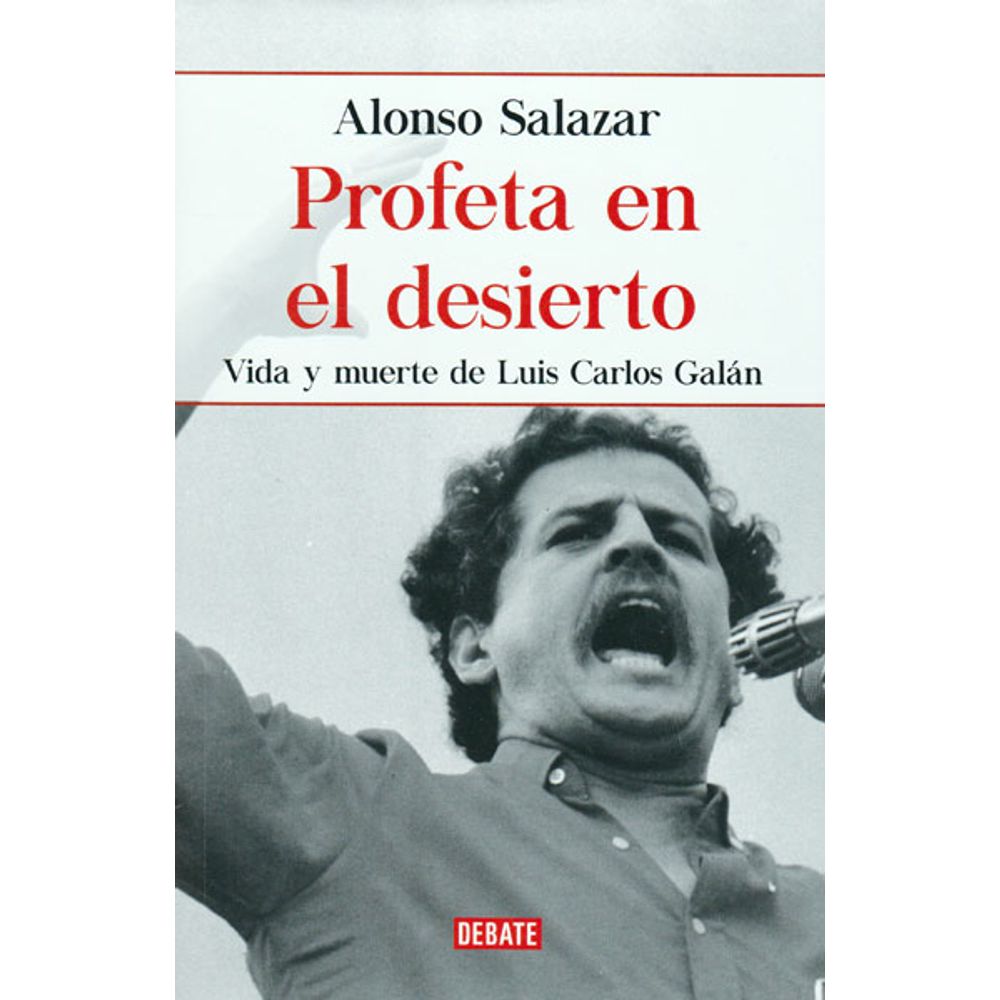
Luis Carlos Galán



The strange, distasteful case of Canada and Honduras
By Rick Salutin
Contributing Columnist
Thu., Aug. 15, 2019timer3 min. read
I feel flummoxed, a word I’ve never resorted to, by Canada’s policy in Honduras. It’s a poor, Central American country, the original banana republic. It suffered many military dictatorships.
In 2009 it had an actual election that was overthrown by military coup. The president, a moderate from the national elites, had developed some mildly “progressive” ideas so the army hustled him out of the country in his PJs.
The rigged election that followed, which all respectable monitoring bodies shunned, was nevertheless approved by Canada (in Harper’s era) even more heartily than by the U.S., which has military bases there. Maybe it was due to heavy Canadian investment in mining and sweatshops.
Subsequent rigged elections ensued; 2017 was a classic. A reformist party led till the vote counting was shut down for 36 hours, then suddenly the military’s favourite surged and won. Thirty protesters were killed afterwards.
Canada endorsed this joke, too, but now under Trudeau’s Liberals. Perhaps they had the added incentive of doing backflips whenever the U.S. asked, in order to cement NAFTA, one of their — they say — great successes (and a joke itself, since Trump has shown he can always block our exports, NAFTA or not).
More:
https://www.thestar.com/opinion/contributors/2019/08/15/the-strange-distasteful-case-of-canada-and-honduras.html
~ ~ ~
The role of Canadian mining in the plight of Central American migrants
August 15, 2019 7.06pm EDT
In October 2018, a group of some 4,000 migrants set out en masse from Honduras, headed north toward the United States-Mexico border.
In the weeks that followed, an all-out panic over this “migrant caravan” gripped the U.S. political mainstream. Donald Trump’s administration painted the caravan as a Trojan Horse, teeming with traffickers, criminals and gang members. The spectacle of the caravan eventually gave way to that of the border itself, which daily throws up new horrors: harrowing images of migrant detainees crowded into squalid concentration camps, held in cages under freeway overpasses, drowned in the waters of the Rio Grande.
It can be easy to imagine that as Canadians, we have little direct stake in this drama. We are reassured in this thinking by recent reports declaring that Canada resettled more refugees than any other nation in 2018. Such accomplishments, we tell ourselves, make us mere observers of the humanitarian calamity currently unfolding at the U.S. southern border.
Never has it been more necessary to abandon this fantasy. Canada is centrally involved in the life-and-death struggle for migrant justice in the United States. Our foreign economic policies and domestic asylum laws are working in tandem with the U.S. and exposing asylum-seekers, particularly those from Latin America, to the worst excesses of a punitive American immigration system.
More:
https://theconversation.com/the-role-of-canadian-mining-in-the-plight-of-central-american-migrants-120724
Pinera opens US$5.5B Chuqui underground
Chile’s president Sebastian Pinera has opened the new underground mine at state copper company Codelco’s Chuquicamata operation in northern Chile.
14 August 2019
The US$5.5 billion project will extend the life of the 100-year old mine for many decades and see it process 140,000 tonnes a day and produce 320,000 tonnes per year of copper and 16,000tpy of molybdenum following a seven-year transition from openpit operations. It has reserves of more than 1 billion tonnes grading 0.82% copper
"Chuquicamata is not just another project, it is unique. Its complexity and magnitude have no equal in the Chilean market; there has never been a project with this scope," said VP projects Gerhard Von Borries.
Having taken 15 years since the first engineering works were completed, Chuqui underground has seen the development of three levels underneath the openpit to a depth of 989m below the pit floor, with some 142km of tunnels built.
The pit is some 5km long and 3km wide, and produced 320,744t of copper in 2018.
https://www.mining-journal.com/events-coverage/news/1369483/pinera-opens-ususd55b-chuqui-underground
~ ~ ~
Aug 14, 2019
Machines Replace a Third of Workforce at Giant Copper Mine
Laura Millan Lombrana and Daniela Guzman, Bloomberg News

The Codelco Chuquicamata open pit copper mine stands near Calama, Chile, , Bloomberg
(Bloomberg) -- Machines are taking over a giant Chilean copper mine, replacing about a third of the workforce as owner Codelco struggles to keep its title as the world’s largest producer of the metal.
Codelco officially inaugurated underground operations at its century-old Chuquicamata mine on Wednesday. The $5.5 billion project is the first of the state company’s multi-billion dollar effort to upgrade mining activities in order to boost productivity. The miner’s output fell to 1.68 million tons last year, from 1.73 million a year earlier as its higher-grade ore reserves decline.
About 1,700 jobs will be cut at the Chuquicamata project as operations shift to underground mining, from open pit. The switch is necessary as the state-run company aims to access higher grade ore through tunnels underneath the pit to avoid a production slump in the coming years.
“Reforms have never been painless, but we must do them,” Codelco Chief Executive Officer Nelson Pizarro said in a speech during the inauguration. “Digital transformation is our ally, the only thing that can help us satisfy environmental requirements, lower costs and empathize with communities.”
More:
https://www.bnnbloomberg.ca/machines-replace-a-third-of-workforce-at-giant-copper-mine-1.1301673
Colombia's president's office and leading newspaper exchange personnel
by Adriaan Alsema August 16, 2019
While President Ivan Duque‘s former speechwriter is set to run the economic magazine of Colombia’s largest newspaper El Tiempo, the daily’s former politics editor is joining the presidential propaganda team.
According to Caracol Radio, the president’s speechwriter, Francisco Miranda, is set to become the director of Portafolio, the weekly economic magazine of El Tiempo, which is owned by Colombia’s richest man, Luis Carlos Sarmiento.
At the same time, the newspaper’s recently laid off politics editor, Edulfo Peña, will become part of the spokesperson for regional press of the president, whose 2018 campaign was financed by one of Sarmiento’s banks.
Truth vs propaganda
The most recent personnel changes between El Tiempo and the Casa de Nariño further blurs the line between those in power and those speaking truth to power in Colombia, and between propaganda and journalism.
More:
https://colombiareports.com/colombias-president-and-leading-newspaper-exchange-personnel/
Editorial from El Progreso Weekly, published in Miami for many years:
Time to make them pay for their hatred
By Álvaro Fernández Last updated Aug 7, 2019
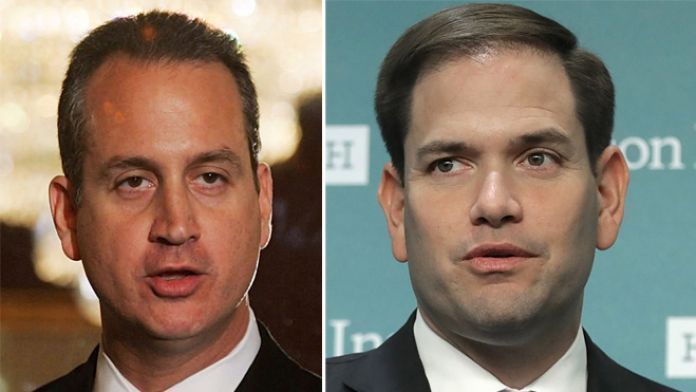
Marco Rubio. Mario Diaz-Balart. Bob Menendez. Albio Sires. Ted Cruz. Alex Mooney. Anthony E. Gonzalez. These are the seven members of the U.S. Congress right now who have Cuban ties. Of the seven, only New Jersey’s Albio Sires was born in Cuba. All the others were born in the United States, or in the case of Ted Cruz, Canada.
I do not know enough about Mooney, who represents a district in West Virginia, and Gonzalez, from Ohio, to say for sure, but in one way or another the ones we’ve known (especially the usual suspects: Rubio, Diaz-Balart, Menendez, Sires and Cruz) use Cuba simply as a wedge issue. It is employed at election time and for raising funds in places like Miami and New Jersey. They use it to milk the government for funds they supposedly employ “to instill democracy in Cuba.” They wrap the Cuban flag around themselves as a demagogic act. In the end they couldn’t care less about the island and its 11 million people.
They are all Republicans except for two Democrats, Menendez (who we know too well) and Sires.
As for not caring… case in point is the Trump policy on Cuba directed by the likes of Marco Rubio and John Bolton. Renouncing anything Obama, Trump took apart a number of the steps taken by the former president when it came to Cuba policy. A policy, that if truth be told, was working in a critical sense. The flow of families, both back and forth from the Island nation, was becoming as natural as it should be. People came and went, back and forth, with few problems.
This in return created what we saw happening. Families working together, some creating businesses in Cuba, and also in Miami for that matter, which resulted in people’s economic livelihood improving on both sides of this centuries-old argument.
More:
https://progresoweekly.us/time-to-make-them-pay-for-their-hatred/
Cultural Centers Cautiously Mount Exhibitions about the Military Dictatorship
Exhibition about Vladimir Herzog excludes image of forged suicide; Sesc seeks to prevent showing 'touchy' cause
Aug.14.2019 1:51PM
Clara Balbi
SÃO PAULO
Search for Vladimir Herzog on Google. The first image that appears is that of a man hanging by a strip of cloth tied to the bars of a window.
The journalist had just taken over as director of TV Cultura when he was summoned to testify at DOI-Codi in Sao Paulo, accused of maintaining ties with the communists. He was tortured and killed during the interrogation.
Military officers forged the photograph depicting an alleged suicide. It subsequently became a symbol of the fight against the military regime and in favor of human rights.
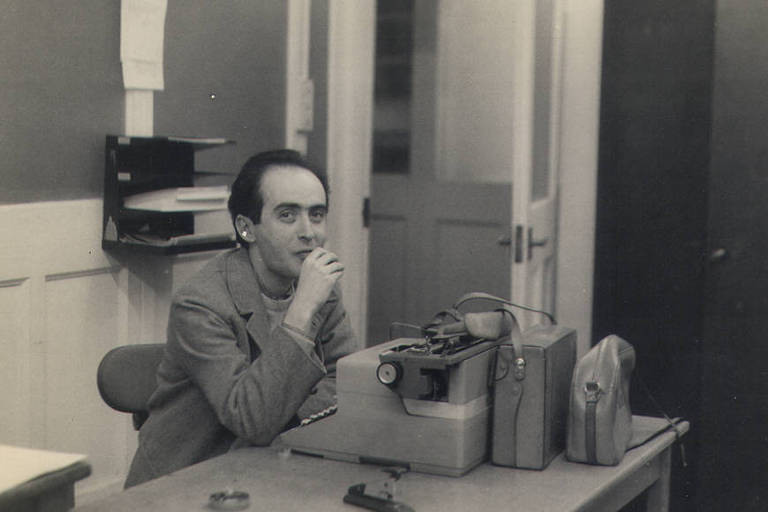
Vladimir Herzog - Acervo Instituto Vladimir Herzog/Divulgação
But it does not appear in an exhibition about the journalist at Itaú Cultural in São Paulo. The exhibition prefers to highlight his life as a devoted father and husband and official family photographer. He was the obsessive editor of Visão magazine, and always concerned about access to culture in the country. But Herzog never became a filmmaker like he wanted since he murdered at the age of 38.
More:
https://www1.folha.uol.com.br/internacional/en/culture/2019/08/cultural-centers-cautiously-mount-exhibitions-about-the-military-dictatorship.shtml
Bolsonaro Laments Interference of FUNAI with Large Construction Projects
Bolsonaro blamed "petrified poop" of indigenous for impeding large construction projects
Aug.13.2019 8:59AM
Paula Sperb
PELOTAS (RS)
President Jair Bolsonaro (PSL) once again spoke about "poop" on Monday (12) in Pelotas, Rio Grande do Sul, during a ceremony to inaugurate a 47-km doubling of a total of 211 km from BR-116 that connects Porto Alegre with the port of Rio Grande.
Unlike the previous time, when Bolsonaro suggested pooping on alternate days to preserve the environment, the president suggested that indigenous feces can disrupt the licensing of essential construction projects.

President Jair Bolsonaro (PSL), in Pelotas, Rio Grande do Sul, during a ceremony to inaugurate a 47-km doubling of a total of 211 km from BR-116 that connects Porto Alegre with the port of Rio Grande. Foto: Clauber Cleber Caetano/PR
"When they talk about container terminal, it's worth it. For years a container terminal in Parana, if I'm not mistaken, has not left paper because it needs an environmental report from Funai. The guy goes there if he finds - already in fashion - a petrified poop of an Indian is gone. You can do nothing else there. It has to end this in Brazil. You have to integrate the Indian into society and launch construction projects that help our country," the president said.
Bolsonaro did not specify which work was being harmed by "petrified poop" of indigenous people. In Paraná, however, different Guarani indigenous communities live near areas with construction projects that depend on reports from Funai (National Indian Foundation).
Funai's participation in environmental licensing of works affecting indigenous areas is provided for in the Constitution. Funai can participate in all stages, from the pre-operation license.
More:
https://www1.folha.uol.com.br/internacional/en/business/2019/08/bolsonaro-laments-interference-of-funai-with-large-construction-projects.shtml
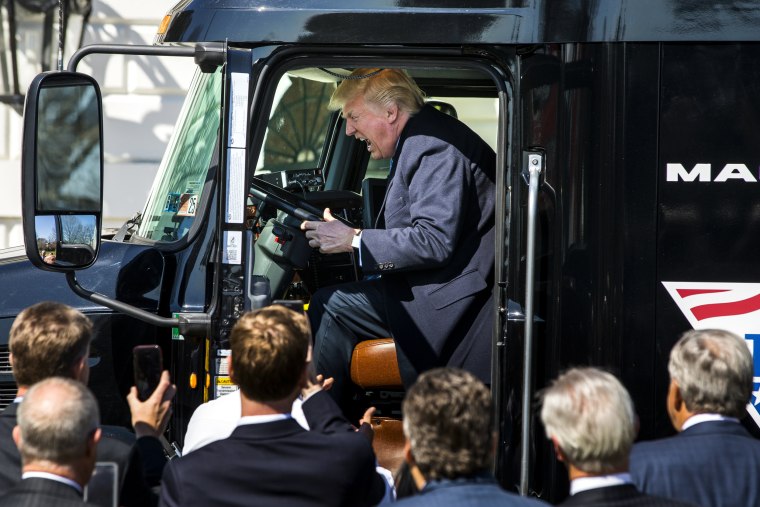
(Why is it these two psychopaths go berserk when they get into big machinery? It's not a good look.)
Americans in Mexico watch uneasily as anti-Mexican rhetoric shows its face in the U.S.
Alfredo Corchado, Border-Mexico correspondent
MEXICO
6 HRS AGO
AJIJIC, Mexico - In this haven for foreigners tucked neatly in a placid, lakeside community with cobblestone streets and surrounded by striking green hills that seem to touch the sky, a billboard welcomes visitors with words that read: “Where Joy is a habit.”
But the Aug. 3 shooting deaths of 22 people, mostly Mexicans and Mexican-Americans, hundreds of miles away in El Paso and the simmering racial hatred that fueled that massacre may be threatening to burst that well-ordered bubble for Americans here, many say.
“Here in Mexico a cough [from the U.S.] causes pneumonia,” said Allan MacGregor, 80, a retiree from Massachusetts, reflecting on the consequences of what he calls hate rhetoric and a smoldering cultural war emanating from the U.S. “That’s not good, especially as Mexico is enduring the aging American invasion.”
These days, aging baby boomers like MacGregor and his wife, Barbara Hildt, find themselves navigating the politics of hate after an alleged white supremacist drove 10 hours from North Texas to hunt down Mexicans at a Walmart in El Paso. The shooting spree in El Paso shattered a sense of peace, a feeling shared by American expats living here. Its ripple effects continue.
More:
https://www.dallasnews.com/news/mexico/2019/08/13/americans-mexico-watch-uneasily-anti-mexican-rhetoric-shows-face-us
Profile Information
Member since: 2002Number of posts: 160,515